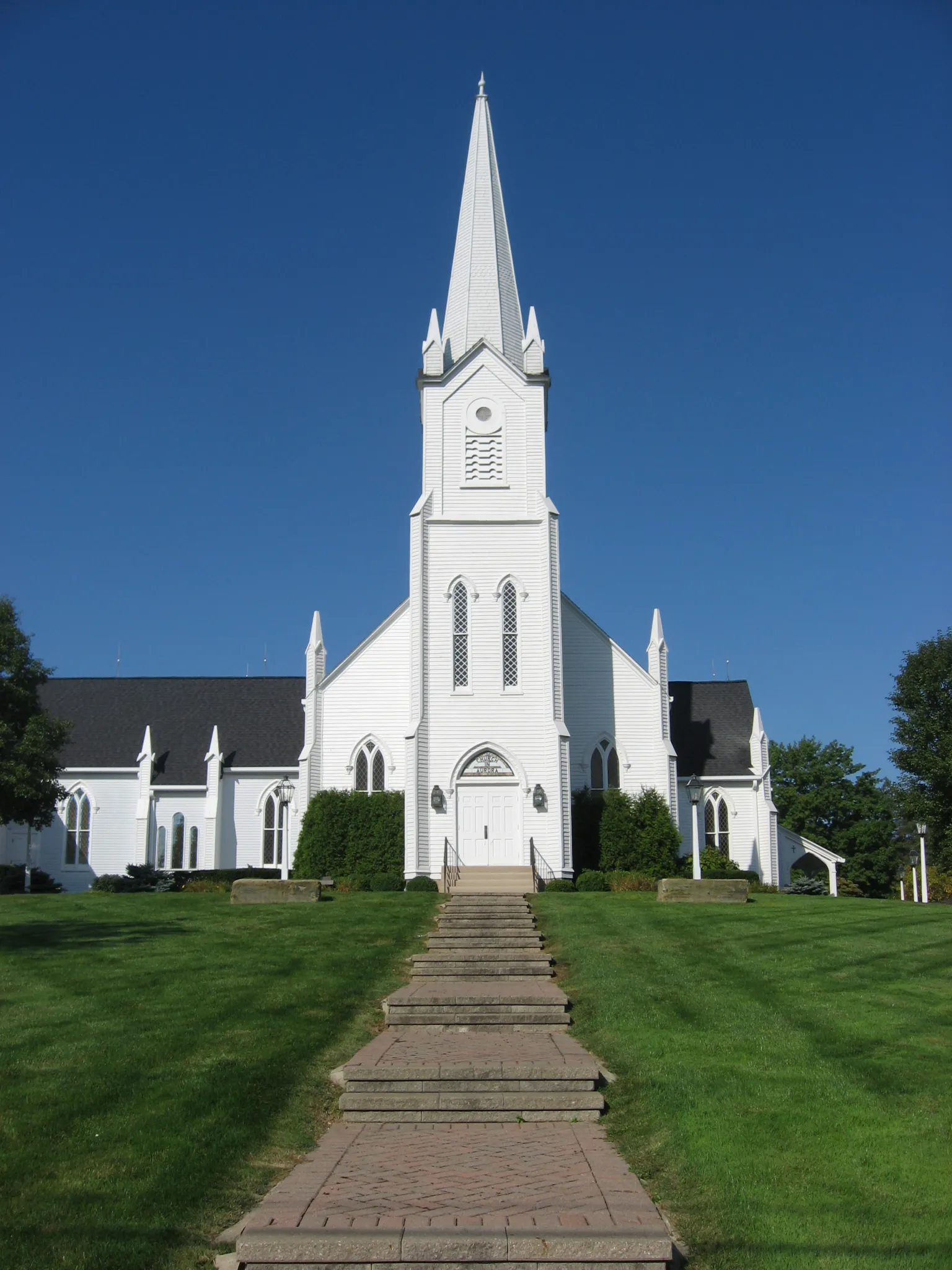Community churches, also known as non-denominational churches, are gaining popularity these days for many reasons. They offer worship, fellowship, and outreach programs that engage with both spiritual and social aspects of people’s lives. In this post, we explore what a community church is, why it’s important to attend one, the inclusivity and diversity of community churches, the role of leadership and pastoral care, and the significance of membership and stewardship. Keep reading to learn more about the meaning and relevance of community churches in today’s world.
What is a Community Church?

Are you wondering what exactly a community church is? While there may be variations among different community churches, at its core, a community church is a gathering of believers who share a common faith and desire to live out their beliefs together in a local area.
Here are some characteristics of a typical community church:
- Fellowship: It’s a place where people can connect with one another and build meaningful relationships. Many community churches emphasize the importance of small groups as a means for fostering these relationships.
- Worship: Worship is important to community churches. Most community churches offer regular services that include singing, prayer, communion, and a sermon. There may also be additional events such as retreats, conferences, and concerts that enable people to worship together.
- Service: Community churches are often involved in serving their local communities through various projects. They may organize outreach programs such as food drives, clothing donations, or volunteer efforts to meet needs in the community.
- Faith: Community churches share core beliefs, such as the authority of the Bible, the divinity of Jesus Christ, and salvation through faith in Him. They believe in living out these beliefs authentically and engaging with the world around them to make a positive impact.
- Congregation: Community churches are made up of people from all walks of life, backgrounds, and ethnicities. They come together to worship, learn, grow, and serve together.
- Leadership: Community churches are typically led by a pastor or ministry team who provide guidance, direction, and oversight. These leaders are responsible for the spiritual growth and discipleship of the congregation.
- Mission: Community churches have a vision and mission to bring people to a deeper understanding of God and their relationship with Him.

In summary, a community church is a vibrant spiritual community that emphasizes relationship, worship, service, and faith. It is a place where people from diverse backgrounds can come together, connect, and grow in their faith.
The Importance of Fellowship and Worship
As a member of a community church, one of the most crucial aspects that drew me to this type of congregation was the sense of fellowship and worship that takes place every Sunday. It’s not just about attending a service and hearing a sermon; it’s the experience of being in a room with people who have the same faith and beliefs as you.
Fellowship is an essential aspect of community churches. It’s the coming together of individuals to share in the joys and challenges of life, support one another, and build meaningful connections that extend beyond the church walls. It’s about being part of a larger community and serving one another in love. In community churches, the sense of fellowship is genuine, and everyone is welcome, regardless of their background or circumstances.
Worship is also a crucial part of community church life. It’s the time set aside to praise God, hear His word, and deepen our spiritual connection. It’s a time to reflect on our beliefs and become more attuned to our faith. Community churches offer varied worship styles, from traditional hymns to contemporary music, and the diversity of worship styles makes it possible for everyone to connect with God in a meaningful way.
In community churches, the goal of worship is not just to meet religious requirements, but to create an environment that inspires us to live our faith more fully. Weekly services provide an opportunity to recharge our spiritual batteries, so we can go out and serve our community with greater love and compassion.
Moreover, community churches offer several worship-related programs that provide an avenue for people to grow in their faith. Bible studies, prayer groups, and discipleship classes are available to help individuals develop a deeper understanding of scripture and become more grounded in their beliefs. These programs offer opportunities for individuals to build relationships and support one another in their Christian walk.
In summary, the importance of fellowship and worship in community churches cannot be overstated. They are the foundation upon which all other aspects of church life rest. They provide a sense of belonging, inspiration, and support that cannot be found elsewhere. If you’re looking to deepen your faith and become part of a loving, caring community, a community church might be the perfect place for you.
Outreach and Ministry Programs
As a member of a community church, one of the greatest joys is being involved in the outreach and ministry programs. These programs help us go beyond just gathering together for worship and fellowship. They allow us to extend our faith and beliefs into the community, bringing hope and comfort to those who may be struggling.
Here are some examples of the outreach and ministry programs that a community church may offer:
-
Service Projects: Many community churches organize service projects in their local neighborhoods or cities to serve those in need. This can include activities like collecting and distributing food, clothing, or hygiene items to the homeless, serving at a local soup kitchen or shelter, or helping to maintain community gardens or parks.
-
Mission Trips: In addition to local service projects, community churches may also organize mission trips to other parts of the country or even overseas. These trips provide opportunities for members to serve and share their faith with those in different cultures and communities.
-
Support Groups: Many community churches offer support groups for those struggling with specific issues like addiction, grief, or mental health. These groups create a safe and welcoming space for individuals to share their stories and receive emotional and spiritual support.
-
Children’s Programs: Community churches often offer various children’s programs like Sunday school, VBS, or summer camps. These programs provide a fun and engaging way for children to learn about faith and values while building relationships with other children and adults in the church community.
-
Adult Education: For adults seeking to deepen their faith and understanding of scripture, many community churches offer Bible studies, small groups, and other educational programs. These programs provide a space for adults to learn and grow in their faith while building relationships with others in their community.

Overall, outreach and ministry programs are essential to a community church’s mission and vision. They allow us to live out our faith in practical ways while building relationships and serving those in our communities who need it most. Whether you are new to the community church or have been a member for years, getting involved in these programs can truly transform your spiritual and social life.
Inclusivity and Diversity in Community Churches
Inclusivity and diversity are fundamental values in community churches. These churches welcome everyone, regardless of their race, ethnicity, gender, sexual orientation, age, or socio-economic background. Their mission is to create an environment where people can feel loved, nurtured, and accepted, regardless of their differences.
Community churches strive to create a sense of belonging among their members, regardless of their background or beliefs. They recognize that each person is unique and has something valuable to offer to the community. Therefore, they encourage their members to share their talents, skills, and experiences to build a stronger community.
One of the ways community churches promote inclusivity and diversity is by organizing social events and programs that cater to various groups of people. For example, they may organize picnics, potlucks, or dinners that showcase different cuisines or cultural traditions. They may also offer music or art programs that celebrate different styles and genres. By doing so, everyone feels represented and valued.
Furthermore, community churches often provide resources and support to people who are marginalized or oppressed. They may partner with organizations that provide housing, food, and clothing to those in need, or they may offer counseling and mental health services to people who are struggling. By doing so, they demonstrate their commitment to social justice and help uplift those who are most vulnerable.
In summary, inclusivity and diversity are key values in community churches. They provide a welcoming and nurturing environment where people from all backgrounds can feel loved and accepted. By celebrating people’s differences and promoting social justice, community churches help build a stronger and more compassionate society.
« Unpacking the Mystery: Who are the Elect of God?
Unraveling the Mysteries of Saul of Tarsus: What Really Happened on the Road to Damascus? »
Leadership and Pastoral Care
One of the main features of a community church is strong leadership and pastoral care. The pastors and leaders in a community church are responsible for providing guidance, support, and spiritual nourishment to their congregation.
Here are some ways in which community church leadership and pastoral care play a crucial role in building a strong and supportive community:
-
Providing Spiritual Direction: The pastors and leaders in a community church are responsible for providing spiritual direction and guidance to the members of their congregation. They help people to better understand their faith, provide answers to their questions, and offer support as they navigate their spiritual walk.
-
Creating a Sense of Unity: The leadership in a community church plays an important role in creating a sense of unity among the congregation. They work to foster a community that is inclusive and diverse, where everyone feels welcome and valued.
-
Offering Pastoral Care: The pastors and leaders in a community church also provide pastoral care to the members of their congregation. This can involve counseling, providing emotional support, and offering practical assistance during times of need.
-
Building Relationships: Community church leaders are also responsible for building relationships with their congregation. They take the time to get to know their members, listen to their concerns, and offer guidance and support as needed.
-
Nurturing Talent: In a community church, leaders also provide opportunities for members to develop and grow their talents. This can involve offering programs, mentorship, and support to help individuals achieve their goals.
Leadership and pastoral care are essential aspects of a community church. They help provide a strong foundation upon which the community can grow and thrive. By fostering a sense of unity, offering pastoral care, and building relationships, community church leaders create an environment that is welcoming, inclusive, and supportive.
Membership and Stewardship in Community Churches

As a member of a community church, there are many opportunities for you to get involved and give back to your community. One of the main ways to do this is through membership and stewardship.
Membership in a community church means that you have made a commitment to actively participate in the life of the congregation. This may include attending worship services, volunteering for various ministries and outreach programs, and financially supporting the church. By becoming a member, you are joining a community of believers who share your faith and values.
Stewardship is the responsible management of the resources that God has given us, including our time, talents, and finances. This involves using our gifts to serve others and support the work of the church. Many community churches offer courses and programs to help members develop their skills and find meaningful ways to contribute to the community.
In addition to volunteer opportunities, community churches also rely on financial support from their members. This may involve pledging a certain amount of money each year, making one-time donations, or giving to special projects or causes. By giving generously to the church, members are able to support its mission and vision, and help it fulfill its role in the community.
Being a member of a community church involves more than just attending worship services. It means actively participating in the life of the congregation and living out your faith through service and stewardship. Whether you are a long-time member or just starting to explore your faith, there are many ways to get involved and make a difference in your community.

As you consider joining a community church, take some time to learn about its history, values, and programs. Talk to current members, attend worship services, and participate in community events to get a sense of the church’s culture and mission. By becoming a member and giving back to your community, you will be able to experience the joy and fulfillment that comes from serving others and living out your faith.












